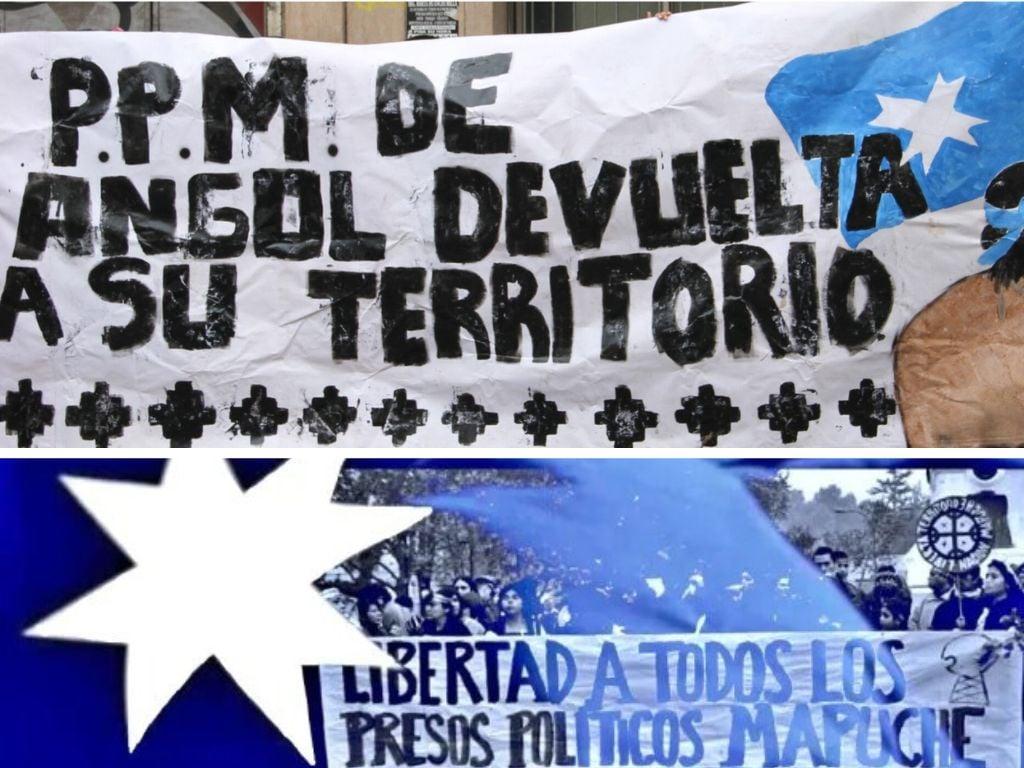
The court ruled out malice, charged lack of evidence and reaffirmed that the conflict in the Angol prison was exaggerated: a new defeat for the set-up and criminalization of the Mapuche people.
The Court of Appeals of Temuco rejected on Tuesday the appeals for nullity filed by the Public Prosecutor’s Office and Gendarmerie of Chile, confirming the sentence handed down on February 7 by the Oral Criminal Court of Angol, which acquitted 17 Mapuche community members accused of the crime of aggravated kidnapping to the detriment of Gendarmerie personnel.
The ruling, which represents a new setback for the attempts at judicial criminalization against the Mapuche communities, ratifies the innocence of the community members, dismissing an unsubstantiated accusation that tried to transform a prison conflict into a criminal case of high political and media impact.
A disproportionate accusation
The events date back to May 2023, when a group of Mapuche prisoners from the communal module in the Angol prison were accused of having held gendarmes against their will who were trying to carry out a procedure to register visits. The prosecution argued that this alleged “retention” constituted a crime of aggravated kidnapping, a serious criminal offense, which carries high penalties.
From the outset, relatives and organizations denounced that it was a new attempt at judicial set-up, instrumentalized to deepen the criminalization of the Mapuche people in Wallmapu, in a context of permanent militarization and media stigmatization.
The ruling that dismantles the story
In its ruling (role 234-2025), the Third Chamber of the Court of Appeals of Temuco ruled out that the court of first instance had committed errors of law or had improperly evaluated the evidence.
“Having examined the judgment under appeal, this Court can find that (…) the Public Prosecutor’s Office could not determine the facts for which the defendants were accused,” the resolution states.
In addition, the appellate court emphasized that neither intent nor convergence of wills, essential elements to configure a kidnapping, were proven. On the contrary, it was found that the community members had no possibility of leaving the module, so the fact should never have been prosecuted.

Political prisoners and delayed justice
The 17 Mapuche people acquitted are: Juan Ignacio Cortés Penchulef, Simón Alejandro Huenchullán Millanao, Pedro Sebastián Palacios Cañuta, Juan Patricio Queipul Millanao, Jorge Froilán Palacios Cañuta, Ismael Elías Fritz Ñancul, Anthoni Luciano Torres Toro, Alejandro Andrés Liguén Venegas, Boris Mariano Llanca Nahuelpi, Joaquín Wenulef Huenchullán Queipul, Fabián Alejandro Llanca Nahuelpi, Hanthu Lemunthu Llanca Quidel, Miguel Ángel Torres Toro, Freddy Jonathan Marileo Marileo, Sergio Isaías Huentecol Melinao, Joaquín Ismael Millanao Queipul and Máximo Iván Queipul Huenchullán.
Of them, Sergio Huentecol was the only one convicted, but only for the crime of mistreatment of the gendarme, with a sentence of 61 days in prison.
The rest were acquitted of all charges, reaffirming that the core of the indictment — the alleged kidnapping — was a failed attempt to fabricate culprits.
The political and media background
As happened in other emblematic cases, such as that of the Tralcal cousins or Operation Hurricane, this case was massively publicized prior to the trial, promoted by right-wing parliamentarians and institutional spokespersons.
An attempt was made to install the image of a violent and radical group, without any evidence to support that narrative. The trial, however, once again highlighted how the judicial system is used as a tool for preventive punishment against indigenous peoples, through the use of prolonged pretrial detention, long processes, and oversized accusations.
A reflection from the defense
Asked about it, lawyer Javier Pineda Olcay, defender of several of the acquitted community members, reflected on the impact of this ruling:
“This sentence is important, because the Mapuche people face a process of permanent criminalization, and this ruling is an oasis in the desert. In this case, Gendarmerie personnel – with media support from right-wing parliamentarians in the area – tried to pass off a daily prison conflict as an attempted kidnapping, which was completely absurd. Fortunately, the court applied the law and decreed the acquittal. However, a greater challenge remains: that the courts always act in accordance with the law and do not continue to convict community members just because they are Mapuche.”
Source: https://www.elciudadano.com/chile/absolucion-presos-politicos-mapuche-corte-temuco/04/16/